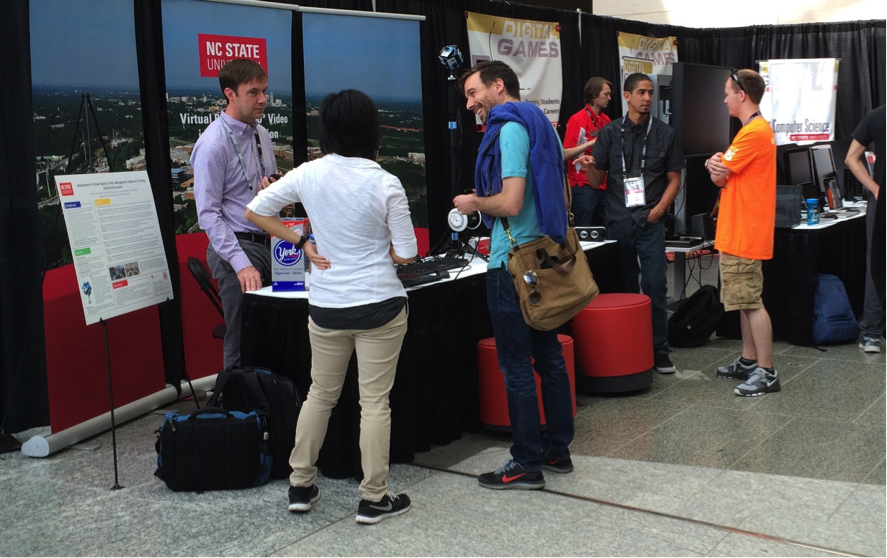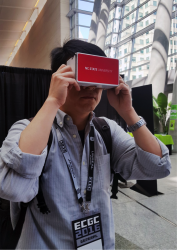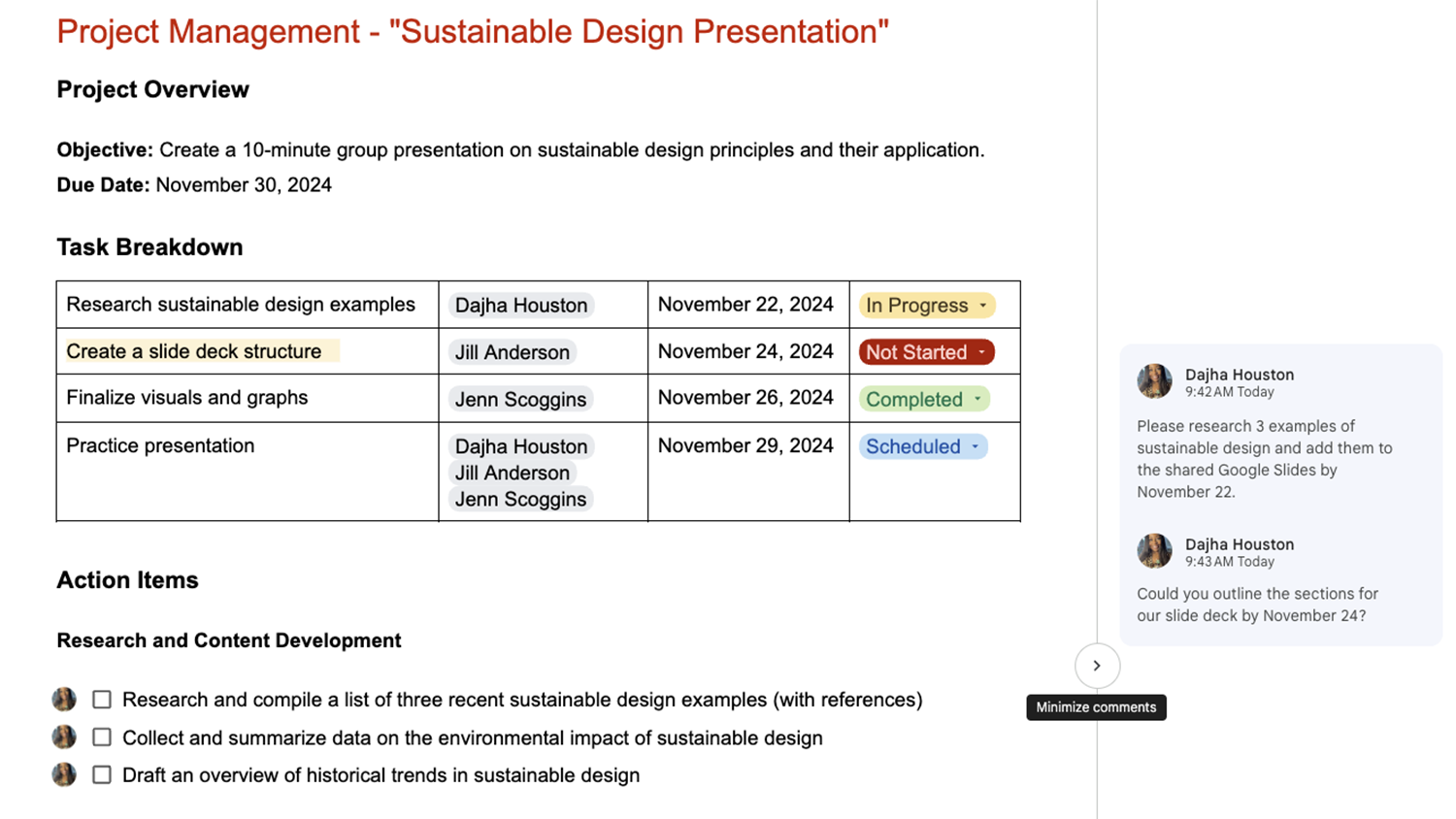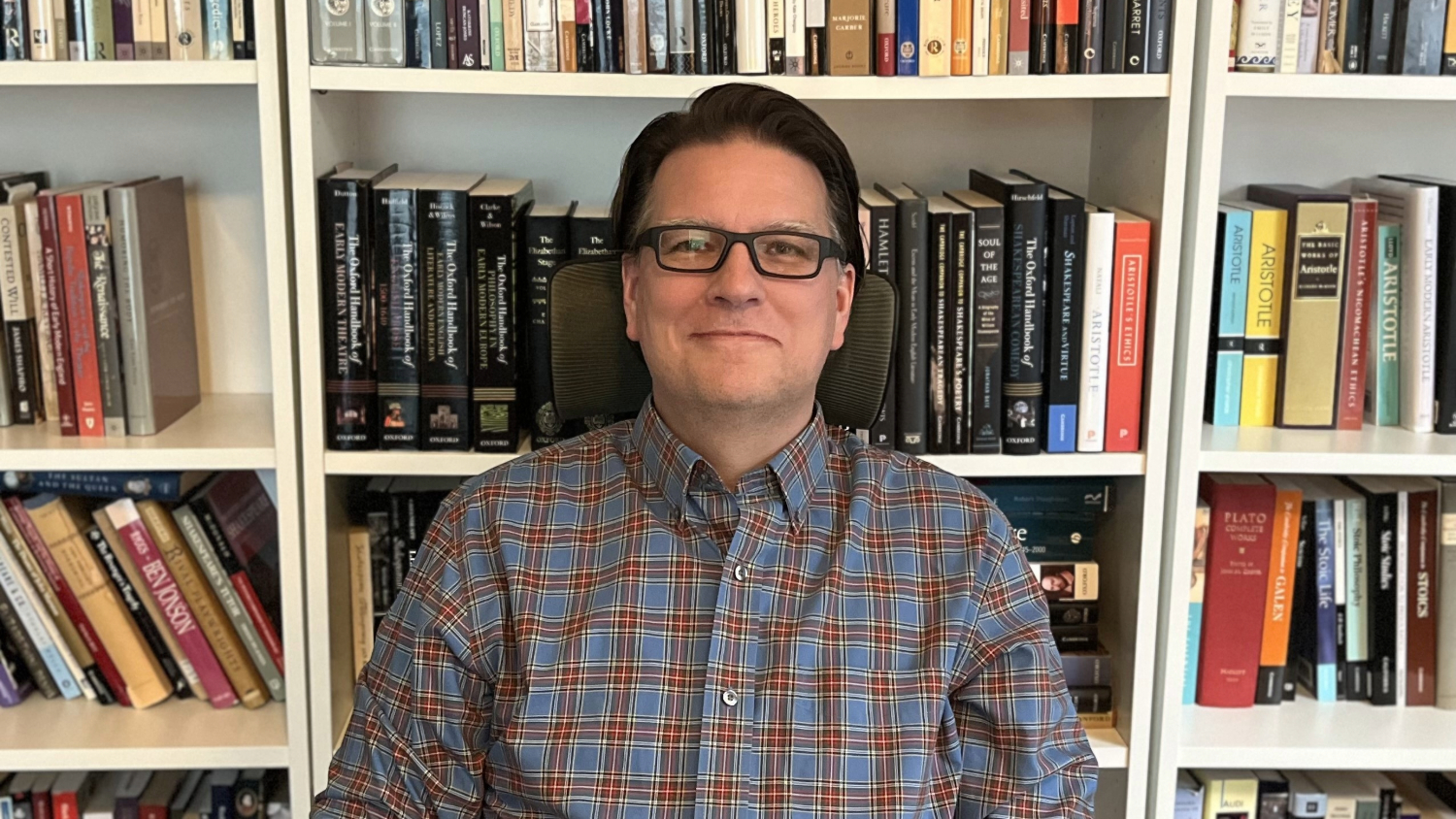East Coast Games Conference VR Village 2016

Educators, researchers and design teams continue to look for innovative solutions to better support lab-based and field-based instruction in online learning environments. The emergence of interactive 360º video capture and virtual reality technologies (i.e. Google Cardboard) have provided new approaches for delivering instruction. With this technology, students can observe (visually and aurally) an environment while retaining the ability to look around in any direction. The interaction can be experienced on a variety of devices — laptop, tablet, smartphone, Google Cardboard, Gear VR Oculus Rift, etc.

DELTA partnered with the College of Design’s Department of Landscape Architecture to secure an exhibit space at the 2016 East Coast Games Conference. The exhibit was a multidisciplinary effort to showcase recent advances in the use of 360º video and virtual reality technologies for online education. With support from the NCSU Libraries, Computer Science, Art + Design, FBNS. Some of the demonstrations featured at the exhibit included:
Empowering Design through Immersive Environments
Zeke Krautwurst, a graduate student in landscape architecture, and Skylar Kitchen, an undergraduate student in architecture, from the College of Design showcased physical and virtual mockups of landscape environments. Photospheres of local landmarks were captured then augmented with conceptual design work to facilitate presentation and community engagement.
Food Safety Inspection Training
NC State alumni, Elias Clark Campbell, demonstrated 360° photography and video training materials being developed in the Food Bioprocessing & Nutrition Sciences department. These interactive environments are used to simulate food safety inspections by introducing interactive hotspots and assessment measures throughout the experience.
Managing Conflict for Community Nutrition
Dr. Natalie Cooke and recent graduate, Arden Mattachini, provided visitors with a first person point-of-view experience teaching children to make banana-yogurt pudding. Donning the Gear VR or Google Cardboard headset, individuals take on the role of lead instructor, responsible for managing conflict in a community classroom setting. This is one of seven 360° video-based conflict management training scenarios that provide student teachers with immersive experiences prior to stepping into actual classrooms. Working with DELTA, the team is pioneering innovation in the use of gaze tracking and heat mapping analytics to observe each user’s interaction with these 360° videos.
Live 360° Video Stream via Unity Game Engine
Emil Polyak, Assistant Professor in College of Design’s Dept. of Art + Design, demonstrated live stitching and streaming playback capabilities using the Ricoh Theta S and Unity Engine. A first of it’s kind, Emil developed a process to allow for engaging mixed reality experiences that combines real-world 360° video and computer generated assets. The demonstration at the exhibit provided an out-of-body experience as viewers could see themselves in the live environment from a third-party perspective.
Haptic Input Glove for Rehabilitation
Art + Design alumni Erin Gebbia, Stephanie Huang, James Park, Holly Thompson and Anahid Telfeyan teamed up to develop an interactive glove meant to gamify physical therapy. In this case, the system is used to teach simple piano songs while doing a physical therapy hand exercise meant to restore mobility to the fingers. Patients, when told to do certain exercises at home, often forget to do so or find the exercises tedious. The purpose of the project was to make physical therapy more fun and engaging for patients to do on their own time, addressing the problem of patient compliance.
In the Spring of 2016, DELTA and NCSU Libraries initiated the NC State Virtual Reality Interest Group. To get involved in the group or for more information, please contact Mike Cuales (mpcuales@ncsu.edu)
Related links:
DELTA Grants Makes VR a Reality
DELTA Exploratory Grant Project Leads to Undergraduate Research Symposium Presentations
- Categories:


